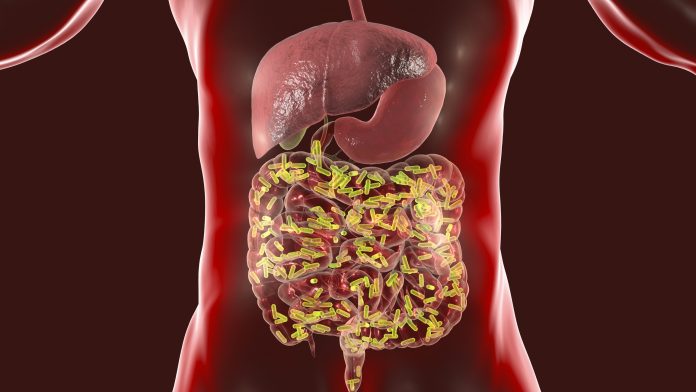
Scottish microbiome biotech EnteroBiotix reports good early Phase II trial results for its lead gut microbiome-based treatment for irritable bowel syndrome (IBS), particularly in people with primarily constipation symptoms.
The company’s lead candidate EBX-102-02 is a “full-spectrum” microbiome product, meaning it aims to emulate the entirety of a healthy gut microbiome, rather than just including a few strains of bacteria that are known to be present in a healthy gut.
The study included 122 patients with moderate to severe IBS-C, where people have symptoms of constipation, and IBS-D, where diarrhea symptoms are more prominent. The topline results announced this week show significant improvements in 62 patients with IBS-C, according to the IBS Symptom Severity Score, which measures stool consistency, average weekly complete bowel movements, and abdominal pain.
“These topline results show that our full-spectrum microbiome-based drug is a potential breakthrough for IBS treatment,” said James McIlroy, CEO of EnteroBiotix, in a press statement. “The data support our approach and bring us closer to delivering a much-needed solution for patients with limited options.” According to the same statement, the company said it “expects to announce final data, inclusive of the IBS-D cohort, in Q3 2025.”
EnteroBiotix, which has offices and labs in Glasgow and Aberdeen, was founded in 2017 by McIlroy, while he was studying at medical school to become a doctor. He was inspired by early research suggesting the gut microbiome could be used to treat a range of diseases if harnessed correctly.
The company has developed a new stabilizing technology for anaerobic microbes that allows ambient temperature stability while maintaining high microbial diversity in its treatments. Its technology also allows the therapies to be administered as an oral capsule, which is convenient and easy for patients.
EBX-102-02 is its lead candidate, but it also has a candidate therapy for liver cirrhosis in development, which showed good results at Phase Ib demonstrating improved gut barrier function and reduced inflammation in participants. It is also developing a treatment for patients receiving allogeneic hematopoietic stem cell transplantation in collaboration with Imperial College London.
In the current Phase IIa study, patients were randomized to receive either eight capsules of EBX-102-02 on day 1 and day 7, or a matched placebo on the same days. The participants were then followed up for six weeks.
Patients given EBX-102-02 started to show improvements as early as one week after treatment and the company said these improvements were sustained during follow-up. Adverse events were mostly mild and self-limiting in nature, with no serious adverse events reported.
Shotgun metagenomic sequencing carried out on patient samples over time showed that patients receiving EBX-102-02 had a gut microbiome shift that became more similar to that of the therapy as time went on.
Based on these results, the company is now planning a Phase IIb study to progress EBX-102-02 further.
“IBS remains one of the most challenging gastrointestinal disorders to manage, with limited effective treatment options that address the underlying disease biology,” said Paul Goldsmith, MD, consultant general surgeon at the University of Manchester NHS Trust and chief investigator of the study, in a press statement.
“The positive topline results from this Phase IIa study show that EBX-102-02 could be a well-tolerated, first-in-class therapy with the potential to address this critical unmet medical need.”









![Best Weight Loss Supplements [2022-23] New Reports!](https://technologytangle.com/wp-content/uploads/2022/12/p1-1170962-1670840878.png)




